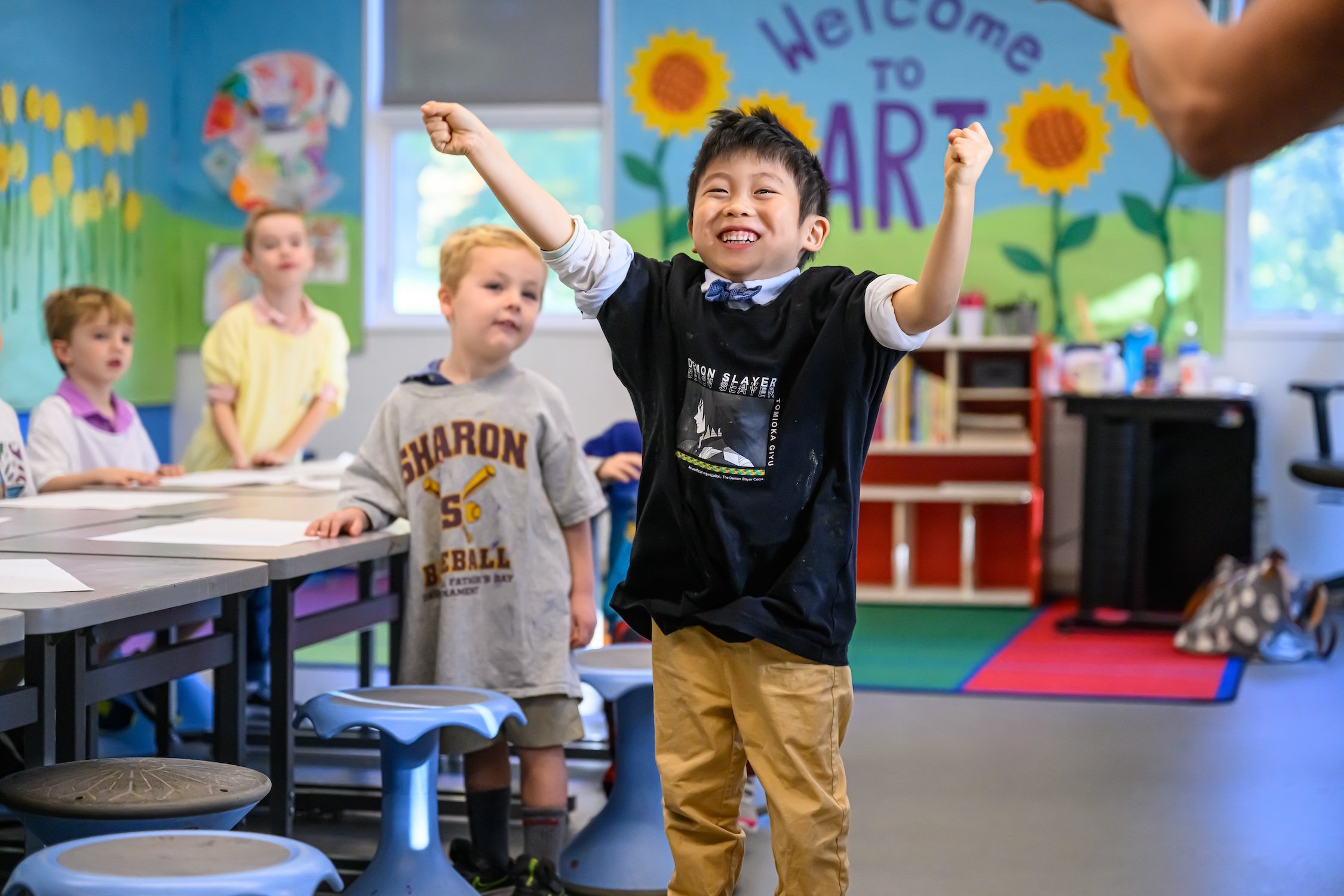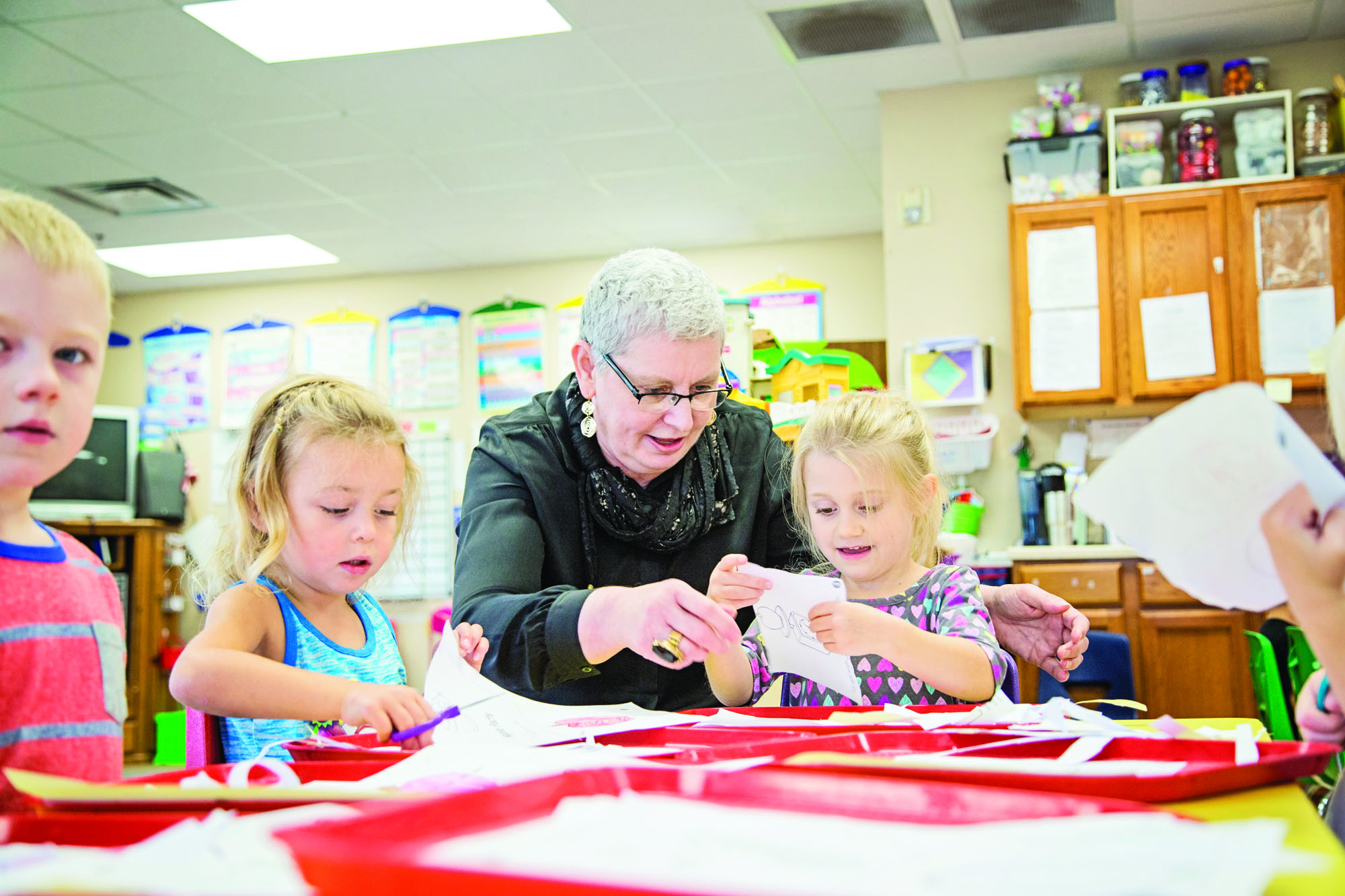How games strengthen critical thinking among Private School students
Wiki Article
All Regarding Elementary School: Essential Truths and Improving Experiences for Young Learners
Elementary school plays a pivotal role fit young learners' futures. It incorporates essential academic subjects and nurtures social abilities via organized interactions. Furthermore, after-school activities give opportunities for creativity and teamwork. Adult involvement further improves this structure, supporting children in their scholastic journeys. As these components link, they create a detailed academic experience. However, what details strategies can parents and instructors utilize to maximize this development?
Comprehending the Quality College Educational Program
As trainees start their elementary school trip, they experience a curriculum created to build foundational skills and expertise across numerous subjects. This educational program usually encompasses core locations such as mathematics, language arts, science, and social researches. Each topic is structured to grow crucial thinking, creativity, and analytical capacities, vital for future academic success.Language arts concentrate on analysis, composing, and interaction abilities, cultivating students' capacity to reveal themselves clearly. Math introduces basic ideas, including enhancement, subtraction, and later, multiplication and department, laying the foundation for much more complex analytical. Scientific research encourages questions and exploration, stiring up inquisitiveness regarding the environment, while social researches imparts an understanding of community and social diversity.
In addition to core subjects, the curriculum frequently includes arts and athletics, supplying a well-rounded educational experience that promotes both intellectual and physical advancement. Quality school serves as an important system for long-lasting understanding.
The Framework of Grade College Education
While quality college education differs by area and institution, it usually complies with an organized framework that promotes dynamic understanding. Usually, grade school encompasses a variety of grades, frequently from kindergarten with 6th or fifth quality, depending on the instructional system. Each grade level represents specific developmental turning points, with curricula created to build on anticipation.Classes are normally organized into core subjects, consisting of maths, language arts, science, and social research studies, making sure that pupils get a versatile education. Direction usually integrates straight training with hands-on tasks, fostering interaction and essential reasoning.

Analysis approaches vary but normally include quizzes, jobs, and examinations to examine pupil understanding. Furthermore, educators often team up to create interdisciplinary systems, enhancing the discovering experience. On the whole, the framework of elementary school education intends to grow fundamental skills, prepare trainees for future academic challenges, and advertise a love for learning that prolongs past the classroom.
Social Skills Advancement in Early Learners
Quality institution education and learning not only concentrates on academic abilities but also plays a considerable duty in the advancement of social skills among early students. Throughout these formative years, children take part in various activities that urge interaction, partnership, and communication with peers. Team projects and participating understanding setups supply chances for kids to exercise sharing, negotiating, and solving problems.Additionally, structured play fosters necessary skills like compassion and understanding, as youngsters find out to react and acknowledge to the sensations of others. With guided social interactions, instructors aid pupils create important paying attention and conversational abilities. As kids navigate friendships and group dynamics, they obtain self-confidence in their social capabilities.
The Duty of Extracurricular Activities
Extracurricular activities play a substantial function in improving the educational experience of quality institution students by supplying opportunities for personal development past the class. These activities allow students to discover rate of interests and abilities, fostering creativity and self-expression. Engagement in sports, songs, art, and clubs cultivates synergy, management abilities, and a feeling of belonging.Engaging in such activities advertises physical health and wellness, urging pupils to keep an energetic lifestyle. Extracurricular programs likewise work as a system for trainees to develop friendships and create social abilities, which are crucial for their overall development
As trainees navigate their passions outside of academics, they obtain beneficial experiences that contribute to their self-esteem and strength. Inevitably, these activities play a critical role fit well-rounded individuals, preparing them for future difficulties both in and out of the class.
Sustaining Learning Via Parental Involvement
Parental involvement substantially boosts the instructional journey of elementary school pupils, as it promotes image source a helpful atmosphere that reinforces understanding. Involved parents contribute to their children's academic success by participating in college occasions, aiding with homework, and preserving open interaction with teachers. Private School. This participation not just enhances pupils' inspiration yet also cultivates a feeling of belonging and self-esteemResearch indicates that youngsters whose parents are actively entailed tend to have higher qualities, far better participation, and enhanced habits in college. In addition, parental engagement urges the advancement of crucial life abilities, such as time monitoring and responsibility.
Colleges can promote this participation by holding workshops, giving resources, and motivating normal comments. By creating collaborations between moms and dads and educators, quality institutions can ensure a complete method to trainee growth. Eventually, visit here parental participation acts as a foundation for fostering a favorable educational experience, benefiting both pupils and the institution area in its entirety.
Frequently Asked Concerns
What Are the Common Elementary School Hours for Trainees?
Typical grade college hours for trainees usually range from 8:00 AM to 3:00 PM, varying by area. Several institutions include a lunch break and recess, making certain pupils have time to reenergize during the day.Exactly How Do Grade Schools Address Diverse Learning Requirements?
Elementary school address varied discovering demands with distinguished instruction, customized lesson plans, and support solutions, ensuring all pupils receive suitable resources. Educators work together with specialists to develop inclusive atmospheres that foster specific development and interaction.What Is the Duty of Innovation in Quality Institution Education And Learning?
Innovation in grade institution education and learning boosts discovering via interactive tools, personalized learning experiences, and accessibility to substantial sources. It promotes cooperation amongst teachers and trainees, preparing youngsters for a technology-driven future while sustaining varied academic needs.How Can Moms And Dads Aid With Research Effectively?
Parents can aid with research effectively by developing a structured atmosphere, motivating self-reliance, giving resources, and using support without straight offering responses. Communication with educators also improves understanding of assumptions and promotes scholastic success.What Are Usual Obstacles Faced by Elementary School Pupils?
Usual obstacles dealt with by elementary school pupils consist of problem with time administration, understanding intricate principles, preserving focus throughout lessons, steering social dynamics, right here and balancing scholastic responsibilities with extracurricular tasks, every one of which can affect their general efficiency.As trainees begin their quality college trip, they encounter an educational program created to develop fundamental skills and understanding across various topics. Generally, grade school encompasses a range of grades, often from kindergarten with 5th or sixth quality, depending on the academic system. Extracurricular activities play a considerable role in improving the academic experience of grade college trainees by providing avenues for individual development past the classroom. Parental involvement substantially improves the academic journey of quality college pupils, as it promotes a helpful atmosphere that enhances discovering. By producing partnerships between parents and instructors, quality schools can guarantee a thorough strategy to student growth.
Report this wiki page